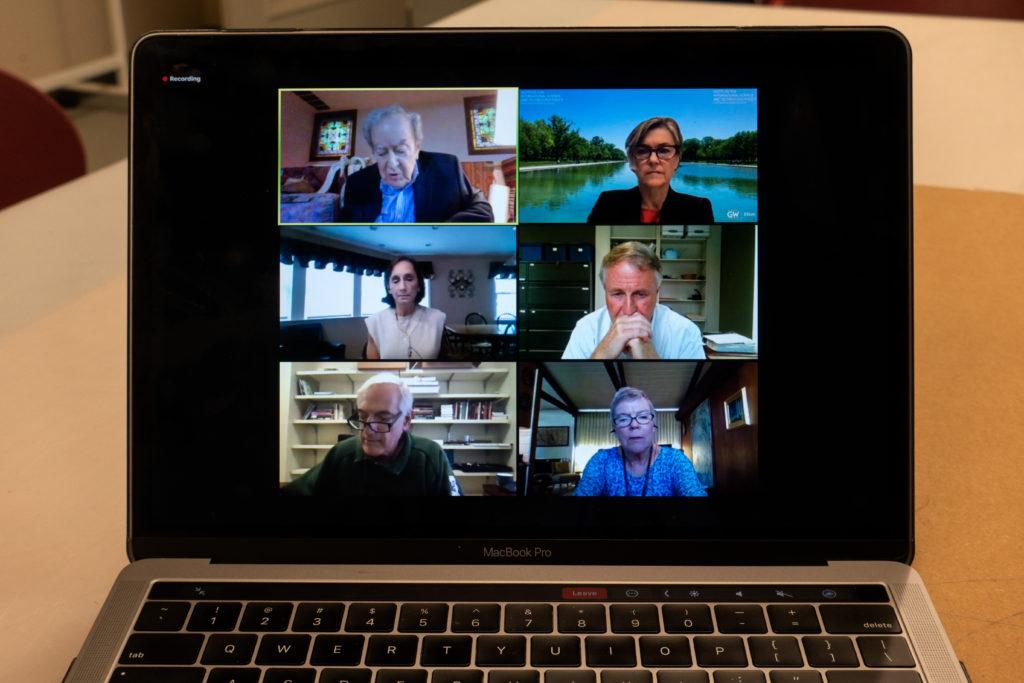The Institute for International Science and Technology Policy hosted a virtual discussion on the current and future state of the U.S. arms control agenda Tuesday.
Former federal officials with experience in American nuclear policy debated the need for the reinstatement of the Arms Control and Disarmament Agency – an independent government agency dedicated to arms control, disarmament, and nonproliferation – during the discussion. Sharon Squassoni, a research professor at the Elliott School of International Affairs, moderated the event.
Ambassador James Goodby, a fellow at Stanford University’s Hoover Institution, said while ACDA, which existed from 1961 to 1999, had a negative role in the arms control agenda, creating an organization dedicated to arms control-based research could be a better solution. He said he led the group that designed ACDA’s integration into the State Department during the administration of former President Bill Clinton.
He said the group argued the agency would help the State Department acquire a team of technical experts that could deal with arms control. Goodby said he is unsure if a specific team focused solely on arms control agenda ever surfaced at the State Department, but a re-creation of one could still be a possibility in the current political environment.
“I think the way to do it is probably through the establishment of an arms control and disarmament research establishment, staffed with high quality scientists, people who also understand the economics, control and so forth,” he said.
David Koplow, a law professor at Georgetown University and the former deputy general counsel for international affairs at the Department of Defense, said the U.S. government should create a new agency dedicated to arms control, like ACDA, because it could re-emphasize the country’s ongoing interest in the cause. Koplow said ACDA successfully promoted the arms control perspective, ensuring its influence of national events.
“Arms control is a component of national security,” he said. “It’s not the whole story, but it should be present in all debates and should be an important insolence.”
Ambassador Robert Gallucci, a professor of the practice of diplomacy at Georgetown’s School of Foreign Service, said he supports the return of an arms control agency, but he’s worried that a research agency that doesn’t frequently enact policies will lower the quality of policy debates.
He said ACDA was able to prescribe policy in instances of strategic nuclear strategy and nonproliferation.
“The national debate of these things deserves to be robust,” he said.
Rose Gottemoeller, the former deputy secretary general of NATO, said the reinstitution of an agency like ACDA would prevent the U.S. from restraining the proliferation of weapons of mass destruction. She said she is pushing for expanded technical capability and capacity in the State Department’s T family – the bureaus of Arms Control Verification and Compliance, International Security and Nonproliferation and Political-Military Affairs – but limited instruments and hiring authorities are available to do so.
“I think we need to think about some solutions that are not so all-encompassing as an attempt at creating an institution or reconstituting an institution like the Arms Control and Disarmament Agency,” Gottemoeller said.
Amy Woolf, a specialist in nuclear weapons policy at the Library of Congress, said federal lawmakers should avoid using the term “arms control” in Congressional discussions, because many policymakers do not view arms control as a way to mitigate national security risks. She said the term can be polarizing and prevent productive conversations.
She said the arms control agenda is an “episodic and sporadic” issue for members of Congress, because arms control issues arise on occasion and are addressed with high intensity for short time periods through meetings, committee hearings and briefings.
“The number of members who pay attention is very small, and it’s not a high priority for their constituents or their committee responsibilities,” she said. “And they don’t maintain staff expertise the way they did back in the era when arms control was more of an ongoing process.”








